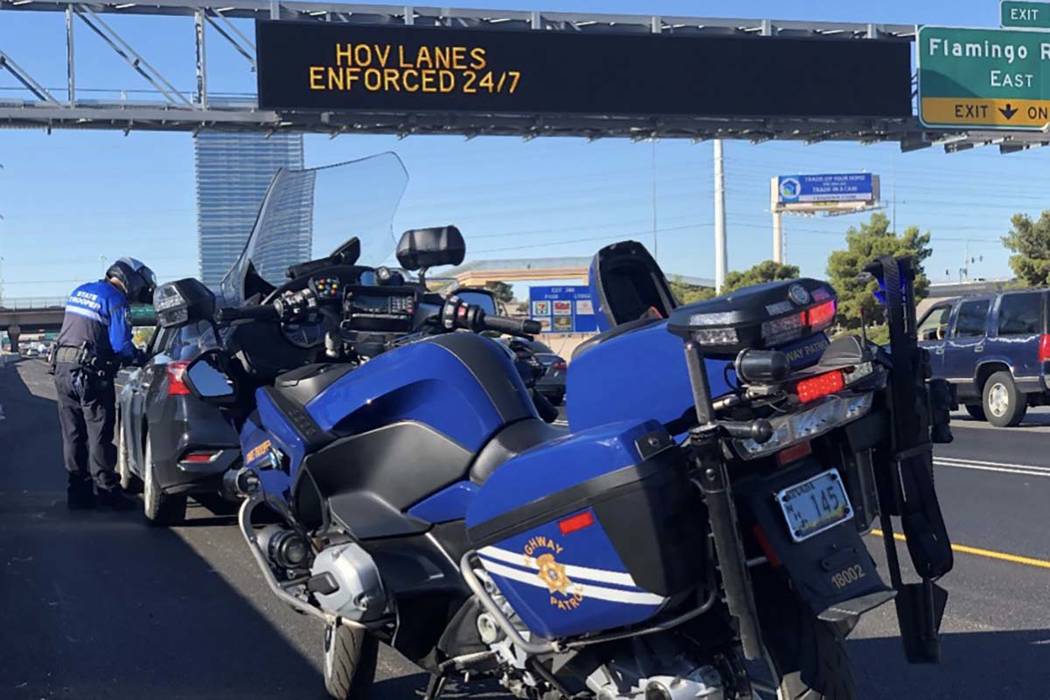Troopers write more than 2.5K HOV-lane citations in first 6 months

State troopers have been busy busting carpool lane violators during the past six months.
And the city of Las Vegas, as promised, has been dismissing more and more of those citations.
Between June 20 and Dec. 12, the Nevada Highway Patrol wrote 2,542 high occupancy vehicle citations in the Las Vegas Valley, including 611 for illegally crossing double-white lines, according to Nevada Highway Patrol spokesman Jason Buratczuk.
New regulations went into effect June 20 on 22 miles of HOV lanes stretching from Silverado Ranch Boulevard on Interstate 15 to Elkhorn Drive on U.S. Highway 95. The regulations, requiring at least two passengers in vehicles using the lanes, now are enforced 24/7. Previously, they were enforced only during peak morning and evening traffic hours on weekdays along U.S. 95.
Responding to commuter complaints, Las Vegas officials vowed to change HOV citations sent to the Las Vegas Municipal Court to parking tickets after the new regulations went into place following the completion of Project Neon.
Between May 1 and Dec. 11, the Municipal Court received 643 HOV citations and dismissed 27 percent of them (173), according to data provided by the city. Fifty-four percent of motorists (345) pleaded guilty, and 19 percent of the cases do not yet have a disposition.
Between May 1 and Dec. 11 of last year, the city handled 528 carpool violation citations, with just nine of them, or 4 percent, being dismissed.
In the last six months, HOV violations were the second-most-issued citations by troopers with the Highway Patrol’s Southern Command — anything south of Tonopah. Speeding tickets were No. 1, with 19,659 written by troopers. Cellphone violations ranked third, with 1,976 written.
Kristina Swallow, director of the Nevada Department of Transportation, said the average vehicle in the HOV lanes on U.S. 95 travels 8 mph faster than the average vehicle in the general purpose lanes.
“They’re a safe difference,” she said. “They’re not going 20 mph faster. They’re going about 8 miles, which is about what you expect, and what you want to encourage folks to use the HOV lanes.”
Similar figures aren’t yet available for I-15 because the department is waiting for active traffic management signs to be fully operational.
The signs have sensors and other technology needed to collect the information. They were expected to go live in late fall but won’t be fully operational until March because of a delay in software testing, Swallow said.
“The ATM signs are critical for the full analysis of the HOV system and the full deployment for the HOV system,” she said. “They will allow us to open the HOV lanes during a crash or construction. … In the meantime, we may see portions of the system rolling out where we could use the signs to do safety messaging. At Christmas we may see something along the lines of ‘Only reindeer can fly. Watch your speed.’ ”
Contact Mick Akers at makers@reviewjournal.com or 702-387-2920. Follow @mickakers on Twitter.